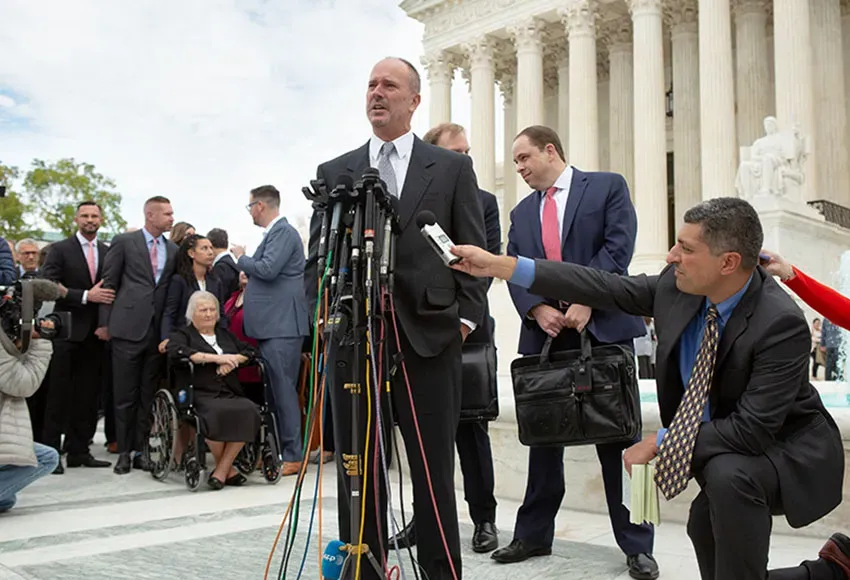A settlement has been reached in Bostock v. Clayton County, the employment rights lawsuit that led to a US Supreme Court ruling that LGBTQ people are protected under Title VII of the Civil Rights Act of 1964.
Ed Buckley, attorney for the plaintiff, Gerald Bostock, announced on November 4 that the Clayton County Board of Commissioners approved an $825,000 settlement for his client. Bostock sued the county, his former employer, charging them with employment discrimination based on his sexual orientation.
"I'm filled with joy, and words can hardly express how happy I am that this is now over," Bostock told a press conference. "As I said from the beginning, no one should go to work fearful of losing their job because of who they are, who they love, or how they identify."
Bostock was a child welfare services coordinator working for the county court when he was fired in 2013. When his employers found out that he'd joined a Gay softball league, conditions at his job deteriorated quickly. His sexual orientation was openly discussed and demeaned by people with decision-making power at his workplace, and he was fired within months of joining the league.
According to his employers, he was fired "for conduct unbecoming of a Clayton County employee." However, Bostock sued the county in 2016, charging that he was fired because of his sexual orientation.
The case eventually ended up in federal courts, where Bostock argued that the ban on discrimination on the basis of "sex," contained in Title VII of the 1964 Civil Rights Act, also protected sexual orientation.
Bostock's argument was dismissed at the district court level and then by the 11th Circuit Court of Appeals on the grounds that existing precedents took a very narrow view of the word "sex" in federal civil rights laws – specifically excluding sexual orientation.
Bostock then petitioned the Supreme Court to hear his appeal. His case was one of three similar suits decided by the Supreme Court in June 2020 in a landmark ruling that Title VII bars job discrimination based on sexual orientation or gender identity.
Writing for a six-justice majority, Neil Gorsuch wrote that sexual orientation and gender identity are necessarily included in Title VII's use of the word "sex."
"An employer who fired an individual for being homosexual or transgender fires that person for traits or actions it would not have questioned in members of a different sex. Sex plays a necessary and undisguisable role in the decision, exactly what Title VII forbids," Gorsuch wrote.
"Those who adopted the Civil Rights Act might not have anticipated their work would lead to this particular result. But the limits of the drafters' imagination supply no reason to ignore the law's demands. Only the written word is the law, and all persons are entitled to its benefit."
After the Supreme Court decision came down, Bostock said, he "felt some pressure off my shoulders," but his fight wasn't over, because his case was sent back to lower courts. After the recent settlement agreement was reached, Bostock said he had the best sleep he's had in nine years.


